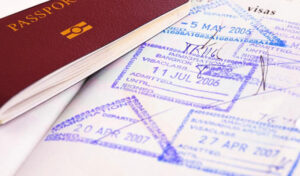Property Taxes in Thailand. Comprehending property taxes is a must for entrepreneurs in Thailand’s cutting-edge real estate industry. This page contains a detailed overview of property taxes in Thailand, including different tax kinds, rates, and important factors for property owners to consider.
I. Categories of Property Taxes in Thailand
A. Fee for transferring ownership:
A transfer fee is charged when transferring property ownership.
Usually, the rate is 2% of the property’s assessed value.
B. Specific Business Tax (SBT):
Relevant when selling a property within five years of obtaining it.
The SBT rate is 3.3% of the higher value that lies between the assessed value and the actual selling price.
C. Stamp Duty:
Stamp duty is levied on formal documents associated with property transfer.
The rate is set at 0.5% of the property’s assessed value or its advertised price, whichever figure is greater.
D. Withholding Tax:
Taxed on revenue generated from property sales.
The withholding tax rate is 1% of the assessed value or the reported price, and it is applicable to both Thai and non-Thai tax residents.
II. Important Factors for Property Owners
A. Tax ramifications of the sale:
Property owners must consider the tax consequences whilst selling their property, such as transfer fees, SBT, and stamp duty.
Solid financial planning helps reduce tax burdens.
B. Tax withholding responsibilities:
Sellers must pay withholding tax while selling property.
Comprehending the withholding tax procedure and requirements is crucial for compliance.
C. Valuation Strategies:
Property taxes tend to vary depending on the assessed value of the property.
Property owners ought to familiarize themselves with the valuation processes used by local authorities.
D. Exemptions and Reductions:
Certain properties may qualify for tax exemptions or reductions.
These could be made up of properties used for crop production or those held by certain businesses.
III. Transfer Process and Tax Obligations
A. Property Sale Agreement:
Having a legally enforceable selling agreement is essential for the property transfer procedure.
The agreement should explicitly delineate the parameters of the transaction, including the agreed price.
B. Payment of taxes at the Land Office.
Property owners are responsible for transfer fees, SBT, and stamp duty at the Land Office when relinquishing ownership.
Make payments quickly to prevent transfer delays.
C. Submission of Withholding Tax:
Sellers are obligated to hand over the withholding tax to the Revenue Department within a certain period of time.
Submission necessitates thorough paperwork, such as the sale agreement and proof of tax payment.
IV. Tax Issues for Foreign Property Owners
A. Non-Thai Tax Residents’ Withholding Tax:
Foreign tax residents are compelled to incur withholding tax while selling property.
Foreign property owners must comprehend the tax consequences and consult with experts for guidance.
B. Tax Treaties
Tax treaties involving some nations and Thailand might impact the tax liabilities of foreign individuals who own property.
Property owners should be educated about any applicable tax treaties.
V. Reaching out with Specialists
A. Legal and Tax Professionals:
It is advised that you speak with legal and tax specialists who specialize in Thai property laws.
Specialists can offer customized advice based on the individual situation of the property owner.
B. Consistent updates on tax regulations:
Tax rules may be altered, affecting the responsibilities of property owners.
Being informed about the tax code helps keep up to current laws.
VI. Conclusion
Property taxes in Thailand are an essential element of real estate deals, impacting homeowners as well as foreign property holders. Property owners need to have an in-depth awareness of different taxes, repercussions, and compliance obligations to successfully navigate the tax environment. Property owners in Thailand can improve their tax situations and support a transparent real estate market by remaining educated, communicating with specialists, and proactively preparing.
Related posts:










